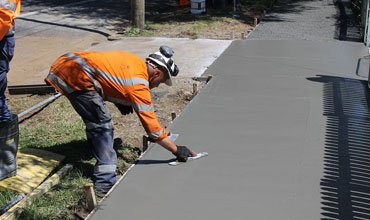
Large scale or small scale construction is the need of the hour. The development and economy of any nation are dependent on its bridges, dams, industries, roadways, and office buildings. The concrete used emphasizes quality, performance, and sustainability which are much needed for the construction industry to grow and thrive. Concrete admixtures are natural or manufactured additives added during concrete mixing to enhance workability, durability, and strength. It is nothing but material other than water, aggregates, and cement, which modifies specific properties of the fresh or hardened concrete before or during the mixing. Admixtures increase the firmness and toughness of ready mix concrete and its density. It is mixed during casting or setting or service stage.
This high-performance material consists of seven essentials: water, cementitious material, sand, gravel, chemical admixtures, additives, and fibre reinforcement. Chemical admixtures such as concrete superplasticisers can be beneficial, and the performance of both hardened and fresh concrete can boost too.
The advantages of using admixtures are as follows:
• Water-reducing: Reduces water content capacity by 5 to 10%, thereby increasing the improved workability level of the concrete. They enhance the practicality of concrete, providing the initial strength in concrete. Admixtures reduce the capillary flow of water through concrete and increase its imperviousness.
• Retarding: The admixture aids in slowing down the setting rate of concrete, making it applicable, and is used to prevent the accelerating effect of hot weather on the constructed area.
• Accelerating: It enhances the rate of strength development and reduces the time of mending. Admixtures accelerate the time of the initial setting, thereby dimming the initial set to improve workability. This strong mixture quickens the rate of strength development.
• Superplasticizers: The concrete admixtures reduce the water content by 12-30%, making it a highly fluid form of concrete, improving the impact of resistance and abrasion.
• Corrosion-inhibiting: The corrosion effect of reinforcing steel in the concrete is hindered. When exposed to chloride in high quantities during marine construction, it curbs the corrosion result.
• Air-entraining: Small bubbles of air formed to increase the cohesion and resistance power, making the concrete economical.
• Curing: It can improve the curing of the concrete and modifies the rate or capacity for bleeding. Some enzymes work as an anti-bacterial agent, thereby increasing the performability.
• Aeration and shrinkage: Concrete admixtures reduce the segregation, and the aeration property acts to decrease the weight of concrete per cubic meter. It assists in reducing shrinkage.
• Waterproofing element: One of the important features is its waterproofing properties. It reduces the initial heat of hydration and overcomes the problem of thermal cracking in concrete.
• Colour: It helps produce coloured concrete or mortar as per your requirement.
• Bond: It reduces the chemical reaction, thereby increasing the bond of concrete to steel reinforcement and the bond between existing and new concrete, making your construction strong and lasting.
• Alkali-silica: Admixtures aid in the reduction of alkali-silica reactivity.
Types of Concrete Admixtures:
(1) Mineral admixtures
(a) Fly ash
(b) Silica fume
(c) Ground granulated blast furnace slag
(d) Rice husk ash
(2) Chemical admixtures
(a) Accelerating admixture
(b) Retarding admixture
(c) Water- reducing admixture
(d) Air -entraining admixture
(e) Super plasticizing admixture
The super-beneficial admixture from West London Concrete. helps in improved quality, acceleration, or retardation of time and enhanced the performance of frost and sulfate resistance.